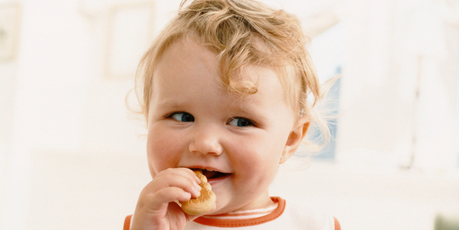
Weaning babies from milk to self-service finger food, rather than the
traditional spoon-fed puree, has become so popular that researchers are trying
to prove whether it could help solve the obesity "epidemic".
Facebook and other websites have "baby-led weaning" pages
packed with comments and questions from parents experimenting with serving
their babies the likes of little sticks of cooked vegetables, meat and other adult
foods that they can suck, chew and swallow. "The evidence on whether it's
good or bad is virtually non-existent," said Associate Professor Rachael
Taylor, of Otago University at Dunedin. "Health professionals, like in
Plunket, are crying out for evidence. They have got a lot of parents asking
whether they should put their baby on this sort of feeding regime."
Professor Taylor will tell an obesity conference in Auckland this week
that the traditional approach of introducing solids - spoon-fed puree and later
mash, then chopped foods - may lead to problems in learning when to stop
eating, which are associated with obesity. The problem is that infants learn to
rely on their parents to decide when they have had enough to eat, rather than
following their own internal cues. "We know that mothers who follow
baby-led weaning tend to be more educated, less likely to return to work before
12 months, and less likely to use feeding practices that have been associated
with overweight in children."
Professor Taylor said those practices included parental pressure to eat
and rewarding infants with treat foods if they ate their vegetables. But there
were potential problems with baby-led weaning, such as iron deficiency,
reduction in growth rates and choking. Professor Taylor and her colleagues have
started recruiting 300 pregnant women, half of whom will be trained to use a
form of baby-led weaning that has been modified to address the perceived risks.
The rest will use the standard weaning methods.
The ability of the children in each group to regulate their own energy
intake will be compared at two years. They will be offered a buffet of food on
two separate occasions, preceded on one day by a high-energy first course and
on the other by a low-energy first course. It is expected this will show if the
experimental method makes a difference.
NZ Herald
Please share
No comments:
Post a Comment